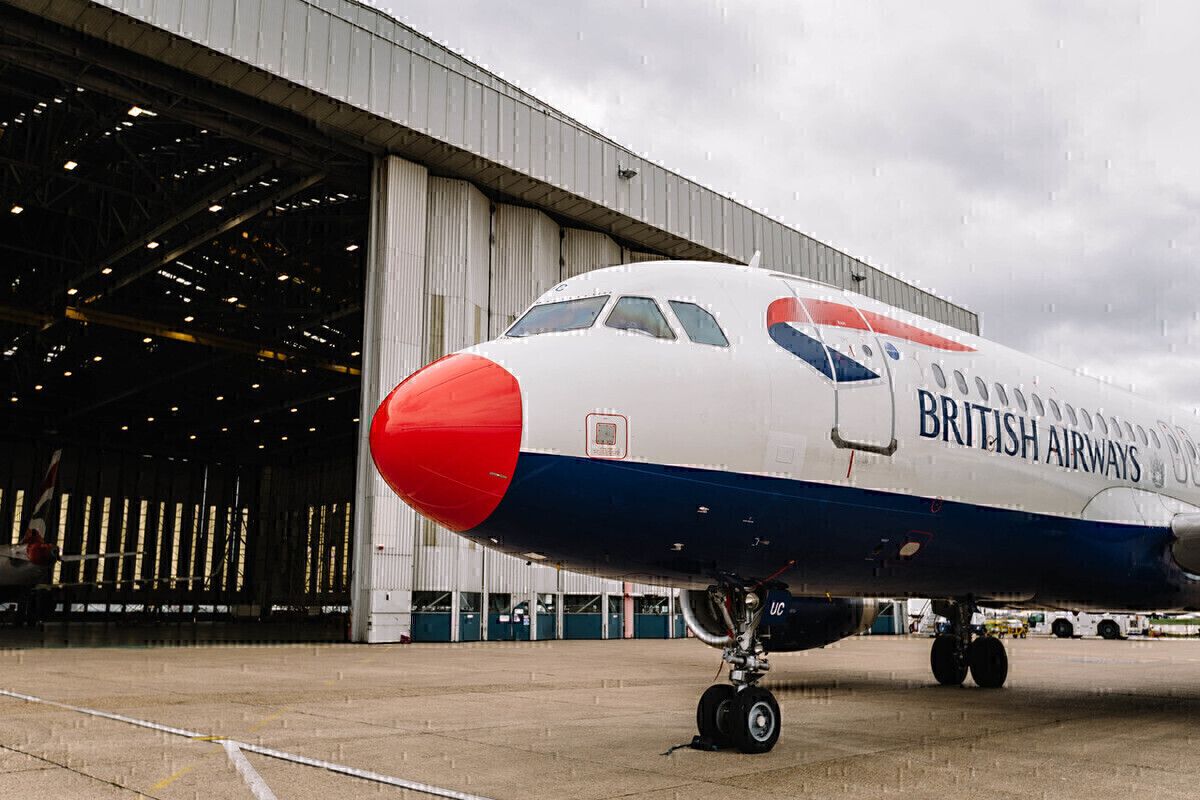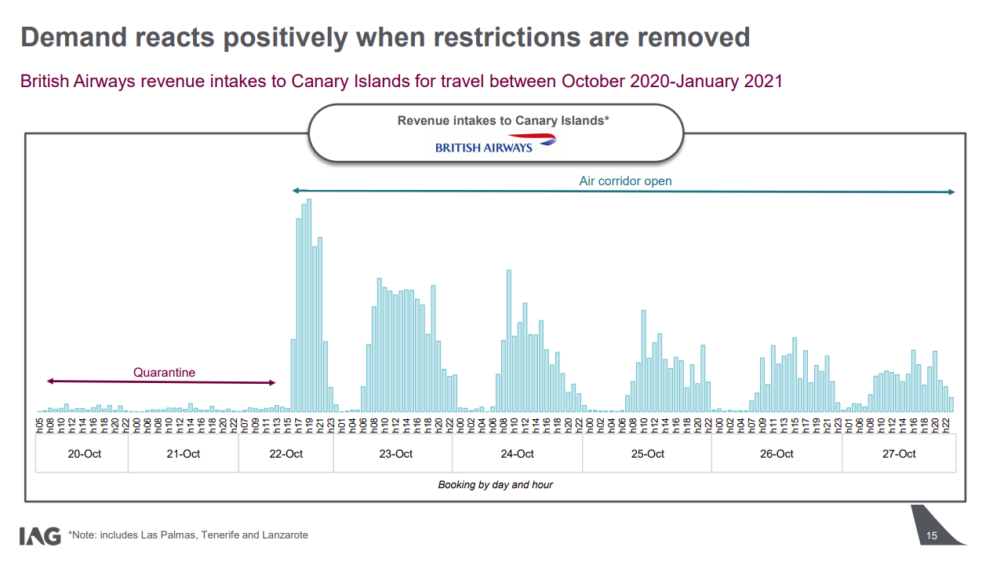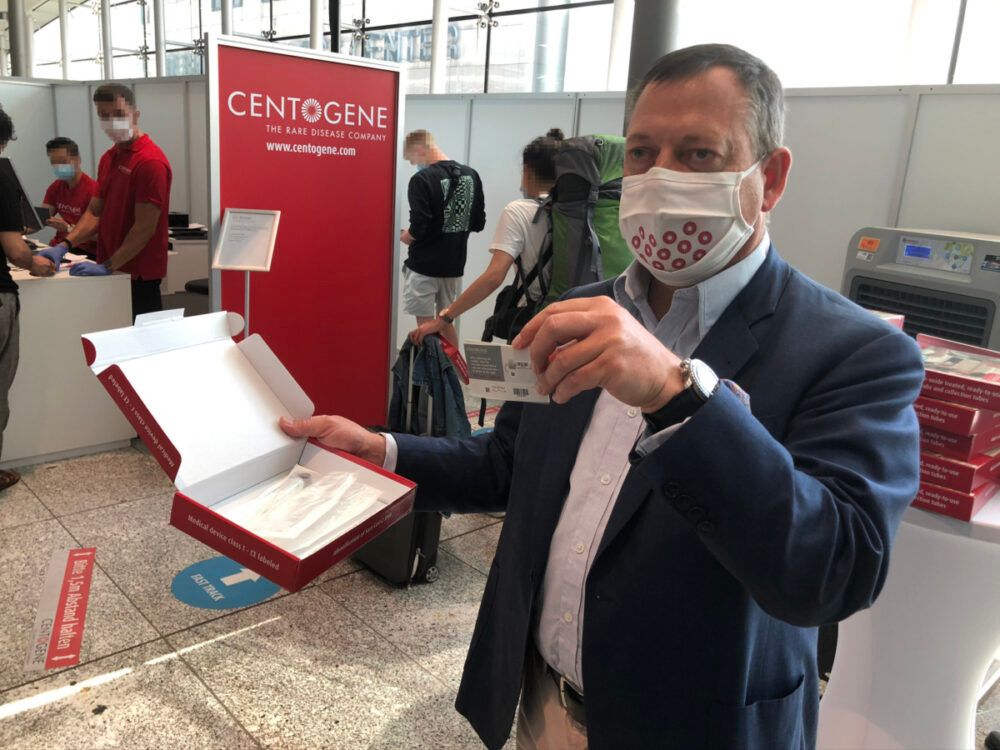As it deals with Europe's ever-changing landscape during the COVID-19 pandemic, British Airways has had to make some reasonably swift decisions at times. However, today the airline released data showing just how vital travel corridors are for the aviation industry's recovery.
Governments worldwide are regularly reviewing travel restrictions to try and stem the spread of the COVID-19 virus. While some limits seem arbitrary, Airlines are arguing for a more managed approach. This could mean following the European Union traffic light system, or implementing pre-departure testing, as is the case for flights to Italy from Heathrow.
Canary Islands case study
The Canary Islands are a perfect example of how booking habits react to changes in government policies. Just over a week ago, the Canary Islands were added to England's list of travel corridors. This means that those arriving in England from the destination don't need to quarantine for 14 days.
On October 20th and October 21st, bookings for flights to Lanzarote, Las Palmas, and Tenerife were virtually non-existent for British Airways. However, when the UK Government relaxed travel restrictions to the islands off Africa's west coast, a massive spike in bookings occurred. Since then, the airline has been clocking bookings each day on the routes.
Stay informed: Sign up for our daily aviation news digest.
Commenting on IAG's Q3 results call, IAG CEO Luis Gallego said,
"We are urging governments to adopt measures, developed by the aviation industry to replace the need for 14 days quarantine periods. Examples include adopting the EU traffic light system, implementing pre-departure testing and introducing air corridor arrangements as priorities."
Heathrow Airport recently began offering rapid pre-departure tests. However, they are currently only available to those flying to Hong Kong and Italy. The airport has been unable to open its inbound test center so far.
Lockdowns increase, travel options decrease
Unfortunately for the aviation industry, the second wave of COVID-19 is currently spending across Europe. This has first and foremost led to countries imposing travel restrictions making travel less appealing to the masses. However, it has also led to countries resuming lockdowns.
Take Germany, for example. Even if passengers can travel there without having to quarantine, the country will be entering a month-long lockdown from Monday. As part of the lockdown, hotels are not open for tourism-related purposes, meaning foreign tourists could only come for a day trip, where all the leisure activities would be off-limits.
Unfortunately, until Europe begins to open up once more, its airlines will continue to struggle with passenger numbers. The impact can be seen in low-cost carrier capacity. Europe's major low-cost carriers all saw a better than expected demand towards the end of summer. However, they have all been forced once again to trim their capacity in response to this second wave.
What do you think should be done concerning travel restrictions? Let us know your thoughts in the comments!



